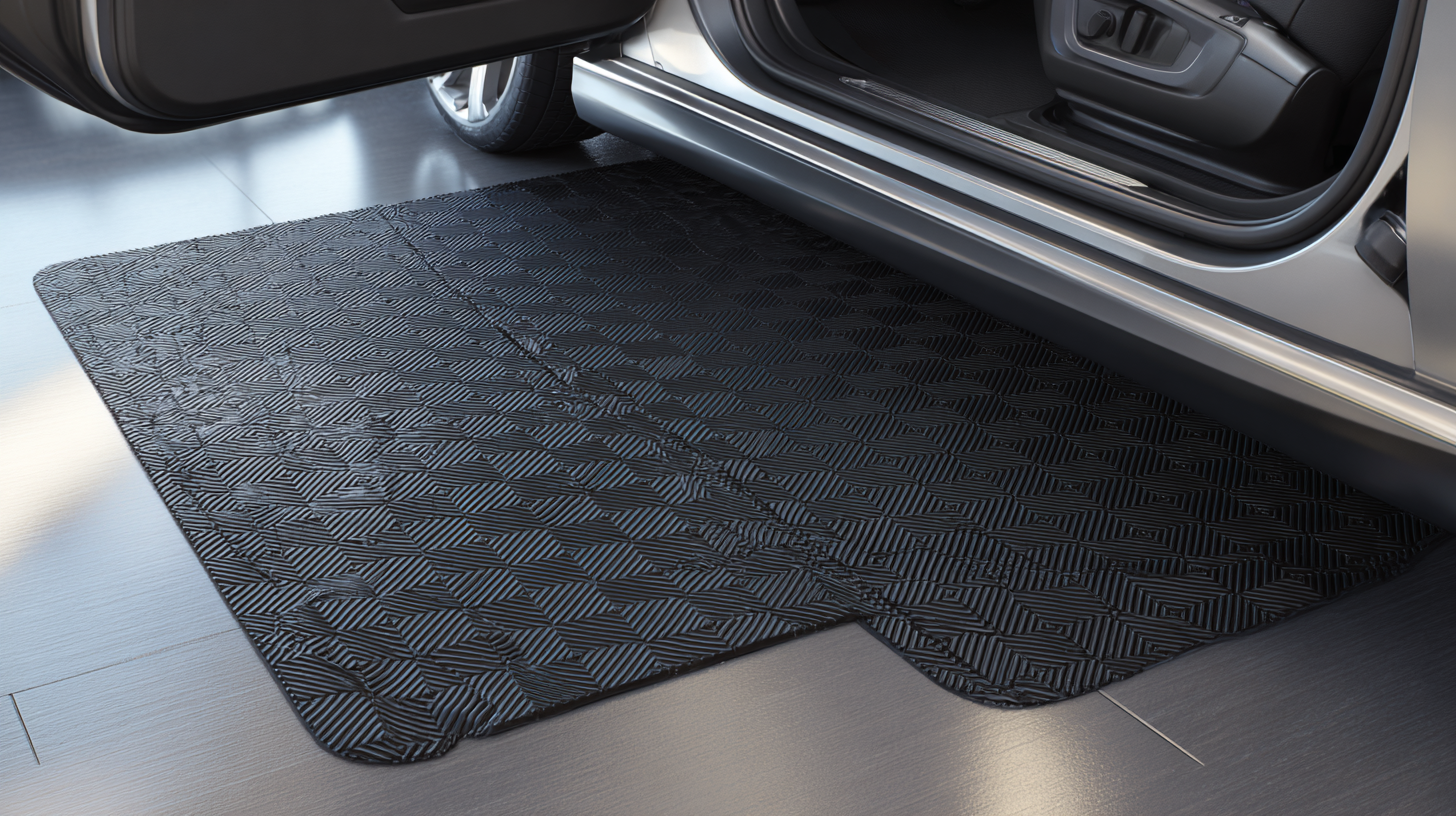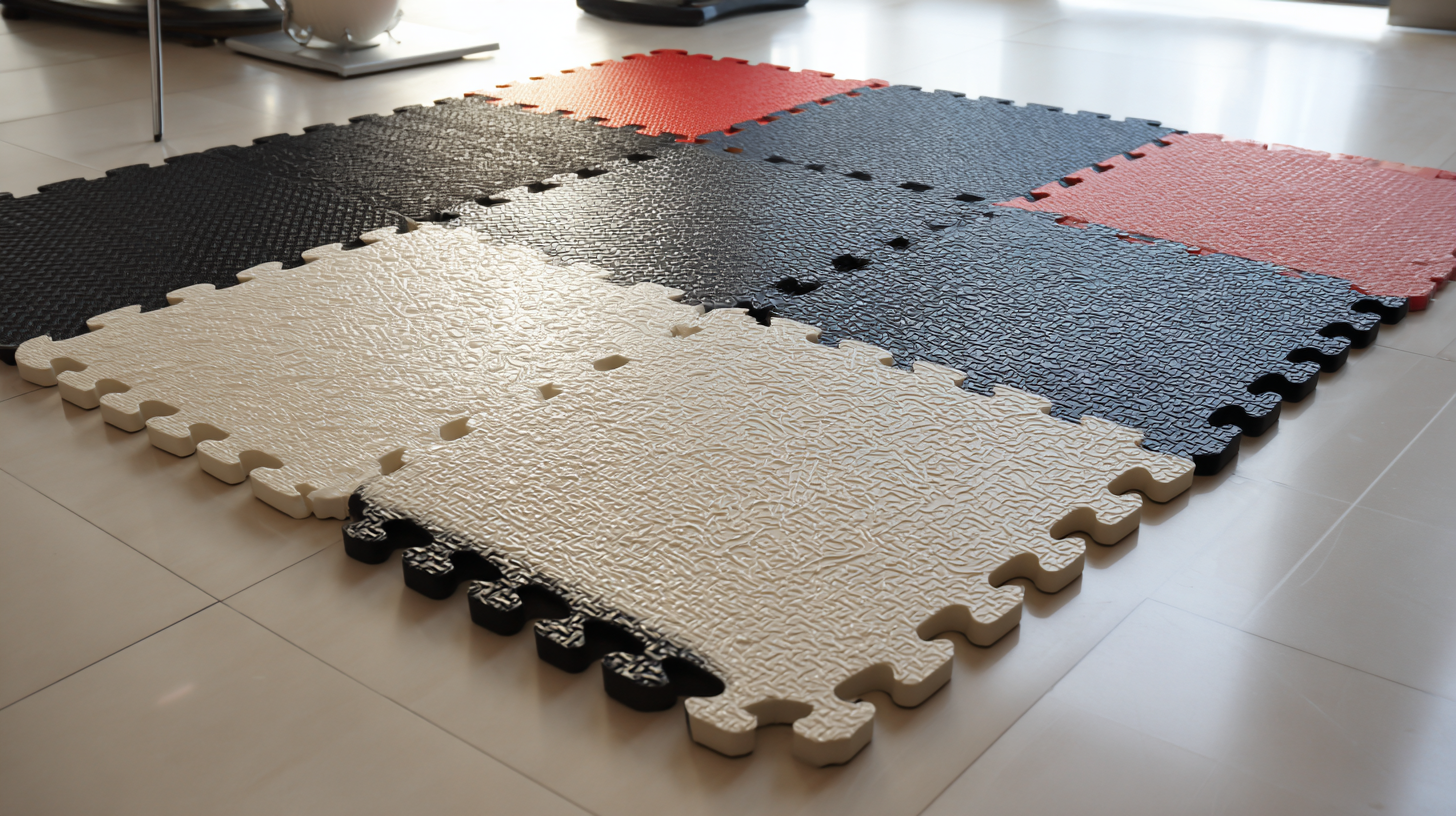Navigating Import Certification for the Best Interlocking Floor Mats in Global Markets
In today’s global market, the demand for high-quality interlocking floor mats has surged, driven by their versatility in commercial and residential applications. According to a recent Market Research Report, the global market for flooring mats is expected to reach USD 2 billion by 2025, with interlocking designs gaining particular popularity due to their ease of installation and customization options. As businesses and consumers alike seek durable and aesthetically pleasing flooring solutions, understanding import certification processes becomes crucial for suppliers aiming to penetrate various international markets.

This blog will guide you through the key steps of navigating import certification for interlocking floor mats, ensuring compliance with local regulations while maximizing market reach and customer satisfaction.
Understanding Import Certification: Key Regulations for Interlocking Floor Mats
Understanding import certification is crucial for businesses looking to navigate the competitive global market for interlocking floor mats. These products are used across various sectors, including sports, commercial, and residential applications. According to a recent report by Smithers Pira, the global market for interlocking mats is expected to grow at a CAGR of 5.2% through 2025, driven by increasing construction activities and a heightened focus on health and safety standards.
To ensure compliance, importers must be aware of key regulations and certification requirements in different regions. For example, the European Union mandates that interlocking floor mats meet EN 71-3 standards for safety regarding chemical release, while in the United States, the Consumer Product Safety Commission (CPSC) regulates material safety and toxic substances. Failure to comply with these regulations not only results in costly delays but can also lead to significant penalties. By staying informed about these requirements, companies can streamline their import processes and ensure their products meet the expectations of international markets.
Comparative Analysis: Certification Requirements Across Major Global Markets
When entering the global market for interlocking floor mats, understanding certification requirements is crucial for success. Each region—be it North America, Europe, or Asia—has its own set of standards that manufacturers must comply with. For instance, in the United States, mats need to meet the Consumer Product Safety Commission (CPSC) regulations, ensuring they are safe and do not pose health hazards. Similarly, the European Union mandates compliance with CE marking, which guarantees that products adhere to EU safety, health, and environmental protection standards.
In Asia, the landscape is varied, with countries like Japan and China imposing their unique requirements. Japan focuses on the JIS (Japanese Industrial Standards) for quality assurance, while China has increasingly stringent standards governed by AQSIQ, emphasizing product safety and environmental impacts. As businesses navigate these differing landscapes, understanding regional certifications can significantly influence their market entry strategies, effectively reducing the risk of non-compliance and enhancing consumer confidence in their products. By conducting a thorough comparative analysis of these certification requirements, manufacturers can better strategize their approach, ensuring their interlocking floor mats meet global demands efficiently.
Navigating Import Certification for the Best Interlocking Floor Mats in Global Markets - Comparative Analysis: Certification Requirements Across Major Global Markets
| Country | Certification Type | Regulatory Body | Key Standards | Timeframe for Approval |
|---|---|---|---|---|
| United States | ASTM Certification | ASTM International | ASTM F1081, F1340 | 2-4 weeks |
| European Union | CE Marking | European Commission | EN 1177, EN 71-3 | 4-6 weeks |
| Canada | CSA Approval | Canadian Standards Association | CAN/CSA-Z262, Z803 | 3-5 weeks |
| Australia | Certification Mark | Standards Australia | AS 4586, AS/NZS 8124 | 3-6 weeks |
| Japan | JIS Certification | Japanese Industrial Standards | JIS A 1455, JIS K 6749 | 4-8 weeks |
The Impact of Certification on Product Quality and Consumer Trust
In today's global marketplace, certification has become a pivotal factor influencing both product quality and consumer trust, especially in the interlocking floor mat industry. According to a 2022 report by the International Organization for Standardization (ISO), products that are certified to meet international standards are perceived to be of higher quality by 75% of consumers. This perception can significantly affect purchasing decisions, particularly in regions where quality assurance is paramount.
Furthermore, certification not only enhances consumer confidence but also helps manufacturers differentiate their products in a competitive market. A survey conducted by the Global Flooring Association in 2023 revealed that 82% of retailers reported an increase in sales for certified interlocking floor mats compared to non-certified alternatives. This trend underscores the importance of obtaining quality certifications, which not only assure compliance with health and safety regulations but also promote sustainable practices, further appealing to environmentally conscious consumers. As brands navigate the intricacies of import certification, understanding its potential to boost product quality and consumer trust is essential for long-term success.
Navigating Import Certification for the Best Interlocking Floor Mats in Global Markets
The chart below illustrates the correlation between different certification types and their impact on product quality and consumer trust for interlocking floor mats in the global market.
Challenges in Navigating Import Certification for Floor Mats
 Importing floor mats into global markets presents a host of challenges, primarily due to the complexities of import certification. Various countries enforce stringent regulations to ensure that products meet safety and quality standards, which can vary widely across regions. For instance, mats made from specific materials may require proof of compliance with environmental regulations, while others might have to undergo rigorous testing to ensure they are free from harmful substances. Navigating these requirements demands a thorough understanding of each country's certification process to avoid delays and potential financial losses.
Importing floor mats into global markets presents a host of challenges, primarily due to the complexities of import certification. Various countries enforce stringent regulations to ensure that products meet safety and quality standards, which can vary widely across regions. For instance, mats made from specific materials may require proof of compliance with environmental regulations, while others might have to undergo rigorous testing to ensure they are free from harmful substances. Navigating these requirements demands a thorough understanding of each country's certification process to avoid delays and potential financial losses.
In addition to the differing safety and material standards, language barriers and bureaucratic hurdles can complicate the import certification process. Importers often find themselves dealing with various agencies, each with its own set of documents and requirements. This complexity can lead to confusion and mistakes that may jeopardize the importation process. To mitigate these challenges, businesses need to invest in local expertise or collaborate with import certification specialists to ensure compliance and streamline their entry into global markets. Staying informed about the evolving regulatory landscape is crucial for successfully navigating the import certification maze for floor mats.
Best Practices for Ensuring Compliance with Import Regulations
Navigating the import certification process for interlocking floor mats requires a comprehensive understanding of global regulations. Each country has its own set of standards and compliance requirements, making it essential for importers to stay informed about specific certification protocols. Businesses should begin by thoroughly researching the import regulations relevant to their target markets, as these can include environmental standards, safety certifications, and material restrictions. Familiarization with certifications such as ISO, ASTM, and CE can help in ensuring that products meet necessary requirements.

To streamline the compliance process, companies can adopt best practices such as maintaining detailed documentation and records of their products. This includes specifications, test results, and previous certifications, which can facilitate smoother assessments by customs authorities. Engaging with local experts or consultants can also provide invaluable insights into the nuances of each market’s import regulations.
Regular audits and compliance checks along the supply chain can further minimize the risk of delays or penalties, ensuring a hassle-free import experience for interlocking floor mats in global markets.
